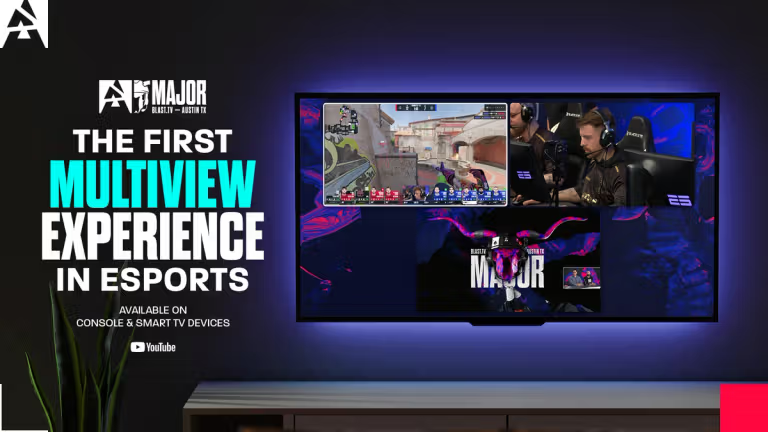
Is Cloud Gaming the Future of Esports?
Cloud gaming has become something of a buzzword in recent years, with lots of publishers and developers rushing to become ‘the Netflix of gaming’. The real prospects go far beyond just having a library of used games available to stream, it has the potential to revolutionize Esports. Streaming could do a lot more than allow you to watch games.
While the idea of a gaming platform with a subscription fee has gone hand in hand with a lot of cloud providers, it isn’t the entire story. Using the cloud for gaming is actually a move that is going to severely reduce the barrier to entry for playing games. As far as Esports is concerned, an efficient cloud gaming platform could remove the question of ‘equipment’ from pro players. Rather than having to rely on high-powered computers to run games as quick as human reaction times, the cloud could take care of it. Think of it as making Esports as accessible as football, all you need is a ball or something capable of opening an internet browser.
In theory, this accessibility is very possible, in practice though? Things get a bit tricky.
What Is Cloud Gaming and Does It Work?

© Newzoo
Cloud Gaming is quite simple really, it applies cloud storage to games. You’re probably familiar with using various cloud services that have become a part of everyday life, like google docs or Apple ICloud. It is the practice of using someone else’s storage space (the cloud) as your own. Cloud gaming frees up your hardware to perform optimally.
Cloud storage for gaming offers a few advantages. The game itself is never hosted on your machine, instead, you stream the game fully running and your interaction with the game is done entirely through an internet connection. Given the nature of this type of gaming, two main uses have sprung up.
The first use is to offer users access to an array of games for a fee rather than purchasing one themselves. This is the Netflix or Amazon model. It is currently being used with Microsoft’s Games Pass and Sony’s PSNow. These are games that the PS4 or Xbox One is perfectly capable of playing but are doing so through streaming. This type is largely irrelevant to Esports.
The second use is to allow consoles or computers to run games that are far too taxing for the hardware itself to handle or take the load off of the hardware. This is what we see with the Switch and Google Stadia. Stadia offers players the chance to play demanding games through cloud streaming, on just about any device. The Switch offers players games that are out of reach of the handheld, through a stable internet connection. For Esports, this would help a gaming PC perform better just as long as the internet connection is unnaturally good. This is kind of where the issues are.
The Problems with Cloud Storage

© Google Stadia
The Switch’s approach to cloud gaming has so far been limited to Japan for a good reason; infrastructure. This lowers the barrier of entry to games from the hardware. However, it then places this burden on your connection. To actually access these games, you need the type of stable high-speed internet that just isn’t found in most countries, especially those with large rural populations like the US.
Stadia doesn’t attempt to limit itself by its internet connection. However, if you try and play Stadia in a variety of places you’ll quickly see why this is a problem. A lot has been said about cloud gaming empowering players in regions where high-powered tech is prohibitively expensive for one reason or another. One example would be Brazil, where consoles are subject to a tax on imported electronics that put the price of a PS4 up to $1845. The problem with this is that the areas that lack affordable hardware typically lack the infrastructure needed to actually use the cloud at a workable pace.
Internet Service Providers are currently trying to find a way to monetize the different services used through their internet connection. At the moment, it looks like you might end up paying more for whichever service you use to your internet provider without any improvement in quality. Is cloud gaming free? No. This could actually make cloud gaming for Esports both more unreliable than hardware and eventually more expensive.
Cloud Gaming and Esports
With this context of the current problems, you can probably draw conclusions about how it will impact the esports. Cloud gaming freeing up a PC to run perfectly could help pros eliminating the impact of hardware. However, these pros already have the best machines that money or sponsorship could buy. These are capable of performing a lot better than an average internet connection.
In theory, it makes Esports accessible to absolutely everyone. If it worked perfectly, it would be liberating for letting literally anyone engage in the sport. Requiring expensive equipment might be filtering out talent from Esports. It could solve the problem, but it is unlikely to actually manage it.
Cloud services providing gaming have the potential to make Esports a truly open to everyone sport. However, it is currently unlikely that cloud storage gaming is actually going to function like this. The barrier isn’t technology anymore; it is an investment in infrastructure. ISP won’t provide the required connections for free, and in many parts of the world, the connection Cloud gaming for Esports needs simply doesn’t exist.












